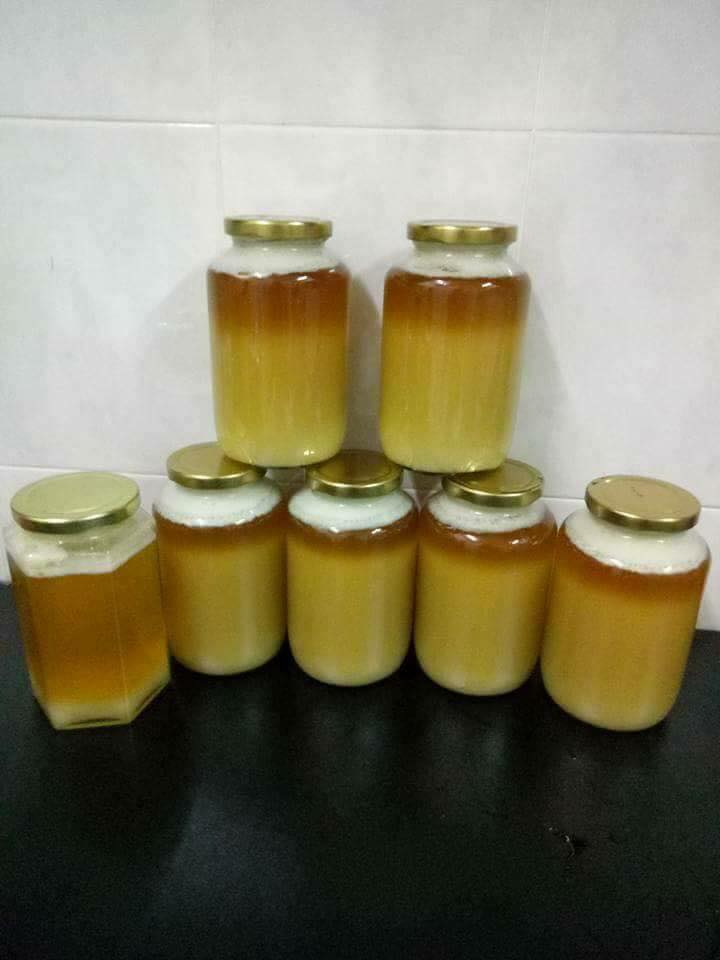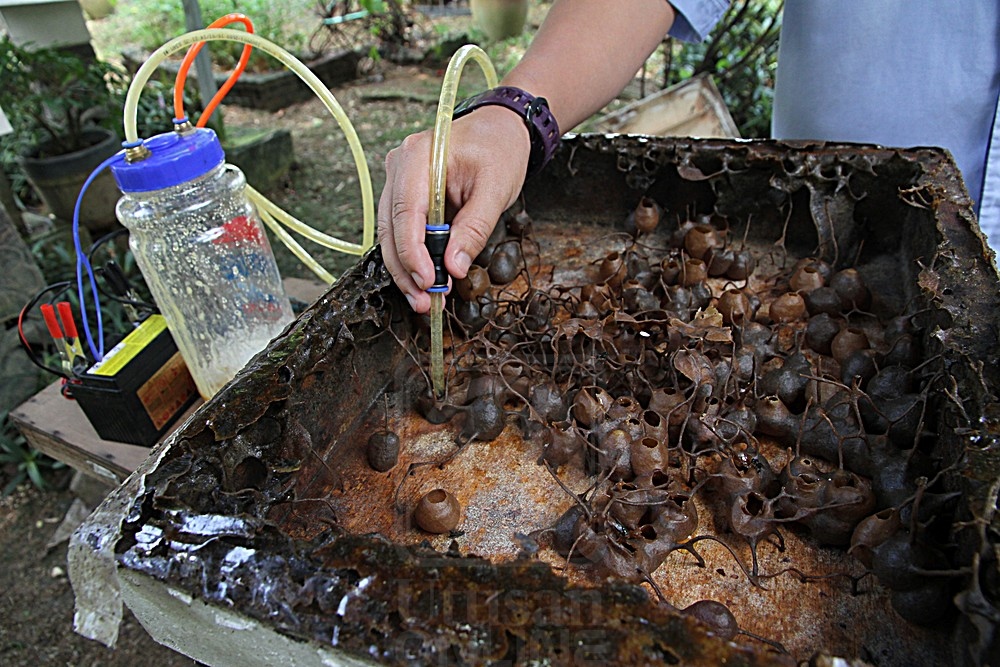Fake Honey In Malaysia: Tests Show That Consumers May Have Been Buying Artificial Products
It is said that honey is the third most commonly faked food in the world.
It was recently revealed that about 80% of honey in the Malaysian market is actually fake
A series of exclusive reports by Berita Harian published on 19 November, alleged that a bulk of honey sold in Malaysia is not actually authentic honey but are in fact, artificial honey.
It was reported that laboratory results show that artificial honey was made of sugar, starch, and corn flour that can harm consumers' health, especially diabetes patients.
Several people who regularly consume honey have reportedly expressed their concerns over fake honey in the market. One of them was a man who had consumed artificial honey for six years.
Berita Harian reported that 54-year-old Khairil Amri (not his real name), has been hospitalised for the past three months as his movement is limited, now that his right leg has been fitted with iron while the wounds on his toes have yet to heal completely.
It was learned that Khairil had been purchasing and consuming kelulut honey, which comes from stingless bees, from his hometown in Kedah. Each bottle of honey is priced between RM80 to RM100, and he took the honey twice a day.
However, he only found out that those were actually counterfeit products after samples were tested by the Malaysian Agricultural Research and Development Institute (MARDI) in January. This comes as he was confirmed of having diabetes in December 2016.
Khairil said he was compelled to get the honey tested because he was very careful with the food that he eats, and he does not take any sweet food and only takes them for a very small portion during festive seasons. He added that he usually goes for the "less sugar" option for his beverages, be it tea or Kopi O.
It was said that many parties sold low grade honey that is not of good quality or even artificial ones at high prices for profit
In a separate report by Berita Harian yesterday, 20 November, it was learned that certain sellers made claims that they sell pure honey based on the colour of it, fine bubbles on the top layer, and the 'pop' sound you hear when opening the bottle.
Some even went great lengths to convince consumers through various gimmicks and demonstrations when in fact, the authenticity of honey could only be proven through expertise and laboratory testing.
It was also pointed out that kelulut honey has gained popularity among consumers in recent times as there have been claims that it is has higher nutritional value, thus seeing the emergence of more artificial kelulut honey in the market.
The report also cited Deputy Director (Food Designing - Health Food) of MARDI, Dr Suri Roowi who found that 15 out of 270 samples of kelulut honey that were tested are actually artificial honey that do not contain any nutrients.
Responding to the issue, the Ministry of Health said that it took a very serious view on the sale of artificial honey in Malaysia
In a statement yesterday, 20 November, Health Director-General Datuk Dr Noor Hisham Abdullah said that Regulation 130 of the Food Regulations 1985 under the Food Act 1983, has specified that honey should contain not less than 60% sugar reduction (reducing sugars) and its sucrose sugar-content should not exceed 10%.
It was revealed that the through the MOH's Food Safety and Quality Division, 77 samples of honey products from various brands in the local market have been tested since 2016. The MOH found that seven samples (9.1%) did not comply with the standards set under the Food Regulations 1985.
Noor Hisham said that the MOH has taken enforcement action against the companies involved, as they have been ordered to withdraw the products from the market and court action has been taken.
While the MOH said that it will continue to monitor the honey products in the market, the public has also been reminded that action can be taken against perpetrators for the sales of counterfeit products
It is an offence under Section 13B(2)(e) of the Food Act 1983 to prepare or sell any food that fails to comply with the standards or specifications as stipulated under the Food Act 1983. Those convicted can be fined RM20,000 or imprisoned for no more than five years, or both.
Noor Hisham has urged those with information regarding suspicious activities by unscrupulous sellers or have any concerns about food safety issues to contact the District Health Offices or the State Health Departments.



